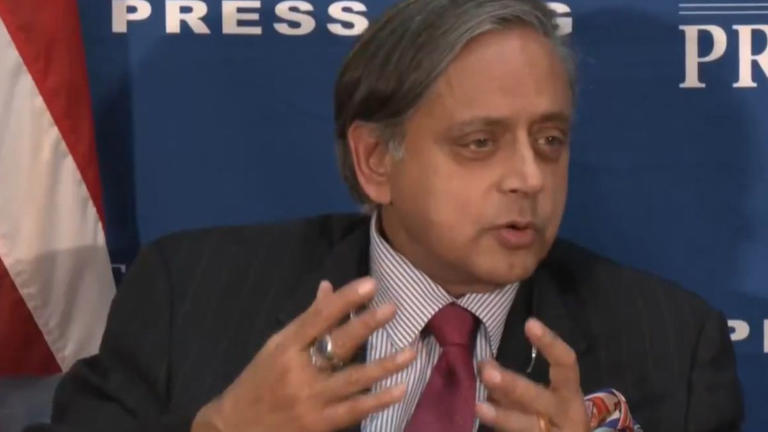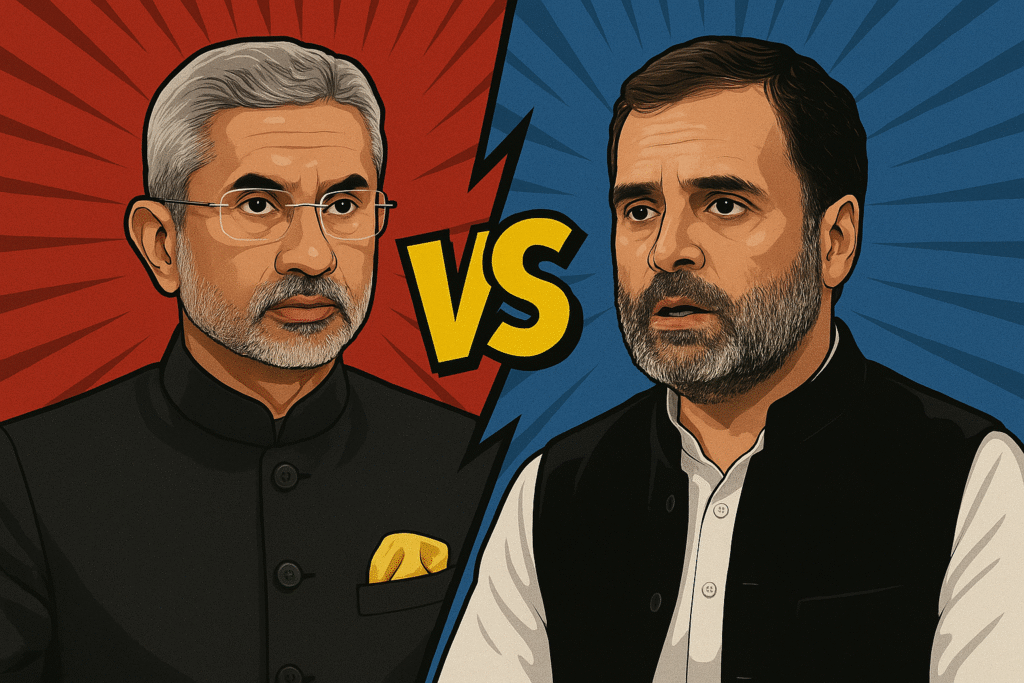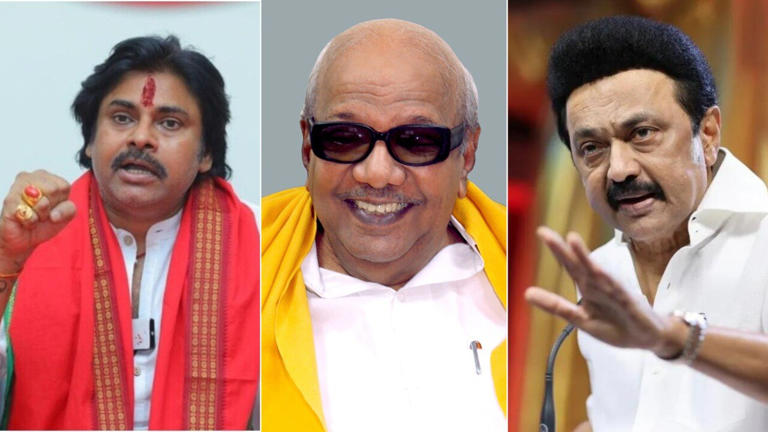Tharoor Clarifies India’s Sovereignty, Trump’s Mediation Role, and Pakistan’s Terrorism Double Standards
Shashi Tharoor, the Congress MP and former Minister of State for External Affairs, responded forcefully to Rahul Gandhi’s recent jibe about Prime Minister Narendra Modi’s diplomacy, which Gandhi referred to as “Narendra Surrender.” The accusation, coming shortly after Operation Sindoor, accused Modi of being overly deferential to the United States, particularly following Donald Trump’s claims of mediation between India and Pakistan. Tharoor, speaking from Washington D.C., addressed the diplomatic controversy, defending India’s sovereignty, clarifying Trump’s role, and directly confronting Pakistan’s hypocrisy regarding terrorism.
Tharoor’s Defense on ‘Narendra Surrender’
Shashi Tharoor was quick to address Rahul Gandhi’s comments about PM Modi’s “surrender” to Donald Trump, particularly regarding the aftermath of Operation Sindoor. Gandhi’s accusations stemmed from Trump’s 2019 remarks that Modi had allegedly sought U.S. intervention to resolve the Kashmir issue. Tharoor vehemently refuted these claims, asserting that India never sought third-party mediation, reaffirming India’s diplomatic stance.
Tharoor responded by stating that India’s foreign policy was never influenced by outside powers. In his words, “India didn’t need persuading to stop. We were ready to stop the moment Pakistan stopped.”
This emphasized India’s sovereign decision-making, asserting that India had set the terms for its actions and would not be dictated to by any foreign country, including the United States. Tharoor’s clarification underscored the consistency and strength of India’s diplomatic autonomy, stressing that India’s decisions are made independently without external influence.
Trump’s Mediation Claim and India’s Sovereignty
The issue of Donald Trump’s role in mediating between India and Pakistan was central to Tharoor’s response. Trump had frequently mentioned that he was “willing” to mediate on the Kashmir issue, with implications that Modi had sought U.S. involvement. Tharoor addressed these claims, stating that while Trump’s efforts were a “positive gesture,” they were not a form of formal mediation. He clarified, “If the US told Pakistan, ‘you better stop because India is willing to stop,’ that’s a wonderful gesture. But not mediation.”
Tharoor further reinforced India’s stance by stressing that no third party could impose terms on India regarding Kashmir. He noted that India’s position on the matter had remained consistent and sovereign, categorically rejecting any idea of external interference. This response effectively dismantled the notion that India had “surrendered” its sovereignty in favor of international mediation.
Tharoor’s Sharp Critique of Pakistan’s Terrorism Hypocrisy
Shashi Tharoor’s comments didn’t stop at defending India’s foreign policy; he also delivered a biting critique of Pakistan’s stance on terrorism. Speaking at the National Press Club in Washington D.C., Tharoor responded to Pakistan’s repeated denials of harboring terrorist organizations. Tharoor invoked a famous 2011 remark by former U.S. Secretary of State Hillary Clinton, saying, “If you raise vipers in your backyard, don’t be surprised if they bite you.” He used this analogy to highlight Pakistan’s longstanding role in sheltering and enabling terror groups, which eventually led to blowback, including the assassination of former Prime Minister Benazir Bhutto.
VIDEO | On Pakistan sending delegation led by Bilawal Bhutto to US after India's 'Operation Sindoor' diplomatic success, Congress MP Shashi Tharoor (@ShashiTharoor) said, "They (Pakistan) are claiming to be innocent, had nothing to do with this and they themselves are victims of… pic.twitter.com/SIlIWdPTZD
— Press Trust of India (@PTI_News) June 4, 2025
By referencing Benazir Bhutto’s assassination, Tharoor emphasized the tragic consequences of Pakistan’s support for extremist groups. He reminded the world that Pakistan’s support for terrorism has led to significant harm, not only for its neighbors like India but also for its own people. His remarks underscored a critical aspect of India’s foreign policy: Pakistan is not just a victim of terrorism but a creator of it.
Tharoor didn’t limit his response to the accusations regarding the U.S. and Pakistan. During his address at the National Press Club in Washington D.C., Tharoor was asked about the potential message India’s military strike on Pakistan (Operation Sindoor) sent to China. With diplomatic subtlety, Tharoor replied, “What happened on the night of the 9th and 10th speaks for itself. And so does Pakistan’s quick retreat the next morning.” His sharp remark seemed to suggest that Pakistan’s swift withdrawal following India’s operation might have broader implications, possibly directed at China’s growing military presence in the region.
#WATCH | Washington DC | When asked, "how much was India's military response designed to send a message to China?", Congress MP Shashi Tharoor says, "...The fact that they (Pakistan) were using Chinese weapons and we were bypassing some of the Chinese radar defences, and the… pic.twitter.com/9qg69LyvFn
— ANI (@ANI) June 4, 2025
Tharoor then added a pointed comment: “Maybe that’s the message the Chinese will have to look at.” This subtly implied that India’s military capabilities, displayed during the operation, were a signal not only to Pakistan but also to China, which has long been a strategic rival in the region.
Tharoor’s sharp words also served as a warning to global powers, urging them not to ignore Pakistan’s role in nurturing extremism for strategic advantage. His statements are consistent with India’s longstanding position: Pakistan must be held accountable for its actions and not treated as a mere victim in the global fight against terrorism.
Shashi Tharoor’s comments offer a powerful rebuttal to both Rahul Gandhi’s “Narendra Surrender” accusation and Donald Trump’s claims of mediation in the Kashmir issue. By asserting India’s sovereignty and independence in foreign affairs, Tharoor has emphasized that India’s diplomatic decisions are made on its own terms. His critique of Pakistan’s hypocrisy on terrorism further cements India’s position that the country cannot be sidelined in the global discussion on terrorism. Moreover, Tharoor’s subtle yet pointed message to China underscores the growing importance of India’s strategic military and diplomatic stance in the region. As Tharoor continues to shape the narrative around India’s foreign policy, his words reflect a growing assertion of India’s autonomy in the face of international pressures.





















